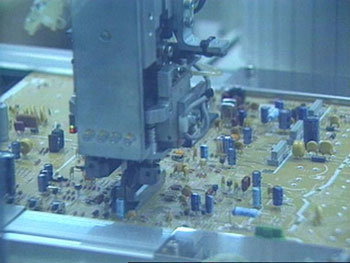TV Show Chronicles Six Decades of Economic Rivalry Between Korea and Japan
TV Show Chronicles Six Decades of Economic Rivalry Between Korea and Japan
Posted August. 26, 2005 03:06,

A year when one country was liberated from the Japanese colonial rule and another country was defeated in World War Two. Two countries economic development started that year: 1945. Koreans born in 1945, otherwise known as children of the liberation, dedicated themselves to economic growth to break away from poverty inflicted by colonial exploitation. The Japanese born in the year 1945, or children of the defeat, committed themselves to the reconstruction of their nation on the basis of technology developed in the years of war.
On August 28 at 11:30 p.m., MBC, Koreas nationwide TV network, broadcast the first part of its special project program, Children of Liberation, Children of Defeat (directed by Choi Byung-ryun), co-produced with Japan on the occasion of the 60th anniversary of the end of World War Two.
MBC worked with Japanese Fuji TV since 2000 on the program, which compares the two countries in various areas. Its first section deals with the economy, examining the two countries competition and analyzing roles that the children born in 1945 played in each nations economic growth.
Koreas children of the liberation, even after they were grown up, couldnt escape poverty. In 1965, Korea concluded a treaty to normalize diplomatic ties with Japan for a mere 800 million dollars of funding aid for compensation for its colonial exploitation. They grew indignant with the government, but at the same time, they shared the view that economic development should be the top priority.
Japanese children of the defeat, on the other hand, were far outperforming their Korean counterparts. When they were around 10, Japan enjoyed one of the most prosperous economic booms in history, thanks to the foreign currency influx from the Korean War.
In 1956, the Japanese government declared in an economic white paper that they were no longer in the Post-War era.
The main growth engine of both economies was the electronics industry. However, Korea had no technological background by the end of 1960. Yun Jong-yong, vice president of Samsung Electronics, said when recollecting the times, We had no technology and no engineers. We had no other choice but to cooperate with foreign companies. We made contacts with numerous American and European companies only to be rejected. Thats why Korean companies had to make deals under unfavorable conditions with Japanese companies, which intended to use Korea as their production base.
The Korean engineers in the era disassembled Japanese products and produced replicas. Those goods were dubbed dead copy in view of their lack of creativity. Korean businessmen had to make use of their personal acquaintances in Japan to achieve that much, and sometimes they even visited Japanese companies without prior arrangement and appealed for help to obtain technology.
The first section of the program covers the period from the Liberation to the 1980s when Korea heavily relied on Japan for its development. The second section slated for September 4 examines the transition from the analog to the digital era and its effect on the relationship between the two nations, along with Japanese companies efforts to regain ground lost to Korean ones.
kimjy@donga.com






![우유냐 두유냐…단백질 양 같아도 노령층엔 ‘이것’ 유리 [노화설계]](https://dimg.donga.com/c/138/175/90/1/wps/NEWS/IMAGE/2026/02/24/133411283.1.jpg)
